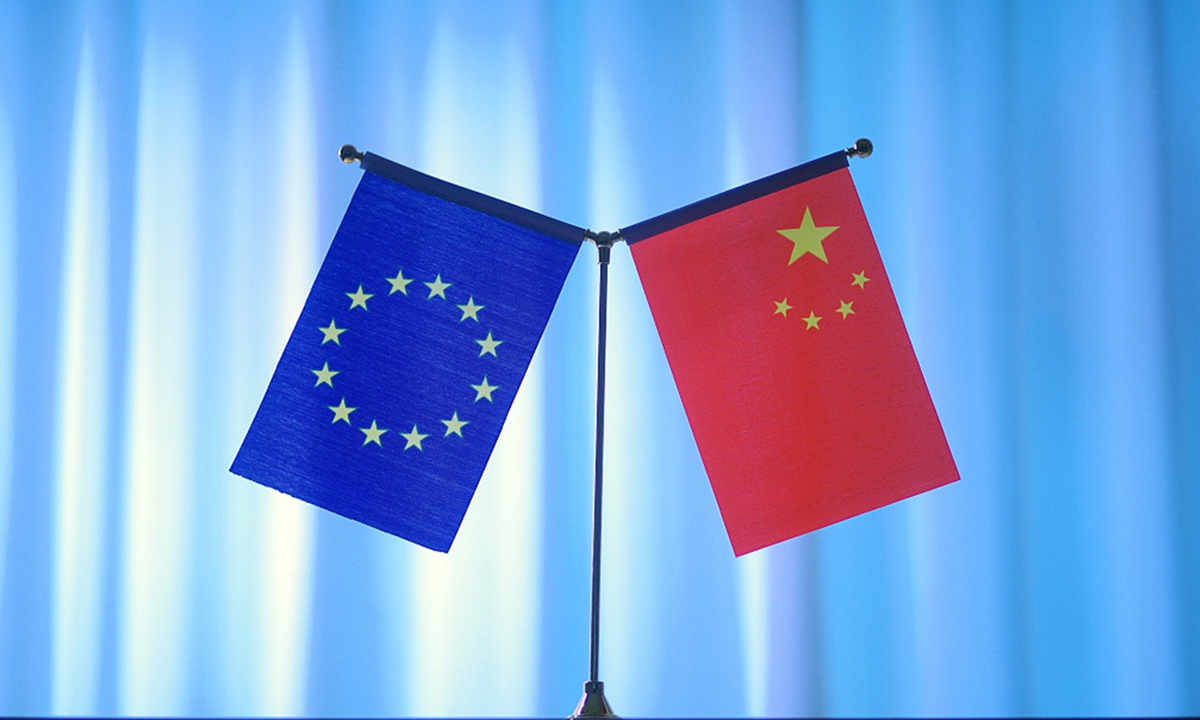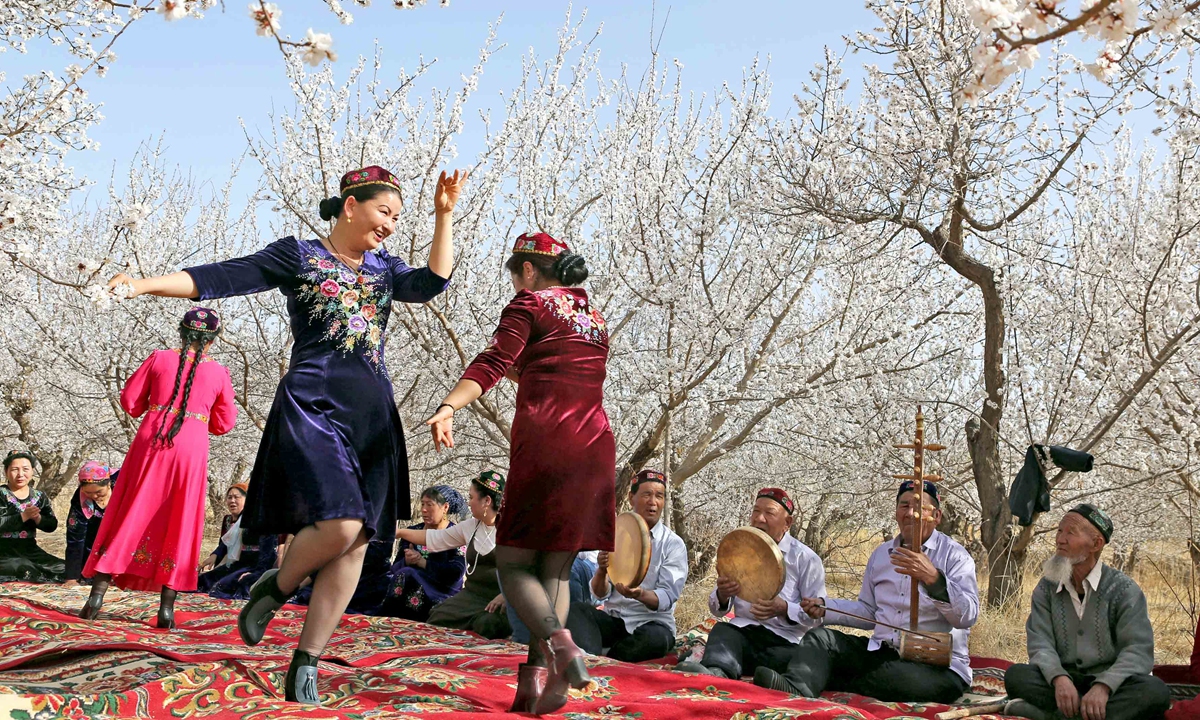More hostility toward China over human rights seen within EU; bloc's leadership urged to act to maintain sound bilateral ties

China EU. Photo: VCG
Some European countries have recently taken turns criticizing China for what they said “repressing” Uygurs in its Xinjiang Uygur Autonomous Region, especially at the ongoing UN Human Rights Council. Against the backdrop of increasing China-EU trade exchanges, politicizing human rights issues may cast hurdles to ties, analysts said, noting that the EU should have more independence from the US and avoid being bound to the US’ warship of attacking China in fields like human rights.
On Thursday, Chinese President Xi Jinping had a phone call with his French counterpart Emmanuel Macron. Taking note of Macron's strong call for strategic independence of the EU, Xi stressed that China believes a stronger Europe is conducive to the peace, stability and development of a multipolar world, and to boosting cooperation between the two major forces of China and the EU to jointly tackle various global challenges, the Xinhua News agency reported.
The remarks came against the backdrop that since January 22, the 46th session of the United Nations Human Rights Council has seen some EU countries stand out in accusing China of “oppressing” Uygurs in Xinjiang, which have been refuted by Chinese representatives to the session.
For example, speaking via video link at the HUNHRC, French Foreign Minister Jean-Yves Le Drian on Wednesday accused China of “institutionalized oppression” of Uygurs. Germany, the UK, Canada, and also the US, which reappeared at the UNHRC as an observer after being absent for three years, made similar accusations.
China has debunked lies about the Xinjiang region and firmly opposed politicizing human rights issues or using such topics to interfere in other countries’ domestic affairs.
On human rights issues, the EU has been under great pressure from the US to criticize China’s Xinjiang policies and accused China of “genocide;” the EU’s accusation against China was also partly out of its traditional values, Cui Hongjian, director of the Department of European Studies, China Institute of International Studies, told the Global Times on Friday.
Within the EU, the public opinion, which had been misled by biased reports and disinformation about Xinjiang, and the conservative forces all pressured the governments to take a tougher attitude toward China on human rights issues, Cui said.
Under such circumstances, there may be more frictions between China and the EU on human rights issues as some EU politicians may push legislation or sanctions related to Xinjiang or directly accuse China of “genocide,” Cui said.

People are holding a Meshrep, a traditional Uygur community gathering, in Hami city of Xinjiang. Photo: IC
For example, the Dutch parliament passed a non-binding motion regarding Xinjiang on Thursday, the first such move by a European country. The VVD party of Dutch Prime Minister Mark Rutte voted against the resolution, according to Reuters.
He Zhigao, a research fellow at the Institute of European Studies of Chinese Academy of Social Sciences, told the Global Times on Friday that small and medium European countries like the Netherlands tend to play bet-hedging to maximize their interests, so they do business with China for economic interests while imposing political pressure on China.
Given these expected twists and turns, it requires the leadership of China and those from Europe to steer their relations to the right track and let these voices be diluted, He said.
Cui also noted that China-EU ties may enter a new period which requires more detailed measures for China to deal with. “The EU has clarified its stance in having cooperation with China while not compromising in other fields, including human rights. China also needs to update its strategies.”
Cui predicted that although disputes in certain fields may occur more frequently, the bilateral ties in the near future may remain stable on the general level as leaders of China and the EU have reached consensus.
However, experts also noted that given that one of China’s focuses this year is to fight disinformation and politicization of human rights issues, the EU should be aware that taking any tough and reckless collisions with China in this field will lead to huge and unpredictable risks.
Different from the US, which has placed human rights at the center of its diplomatic policies to attack China, the EU does not, and its foreign policies serve the overall interests, experts said, warning that the EU should weigh pros and cons when facing with the US’ attempt to bind it with US policies toward China.
The expert noted that the EU has focused more on strategic independence as it does not want to be marginalized in the international system and also wants to gain an upper hand during interactions with China and the US amid the more intense competition between the two.
He said that considering current China-EU economic and trade relations, once the EU gives priority to human rights issues over implementing pragmatic and practical diplomacies toward China, bilateral ties would be hurt.
China overtook the US last year as Europe’s top trading partner for the first time, data from the European statistics office in February shows. EU exports to China grew by 2.2% and imports rose by 5.6%. In comparison, exports to the US dropped by 8.2% and imports fell by 13.2%.
China and the EU have concluded in principle negotiations for a Comprehensive Agreement on Investment at the end of 2020, a move that analysts said would boost exchanges. The US had showed anxiety over the agreement and worries that close China-EU ties would hurt trans-Atlantic relations.


